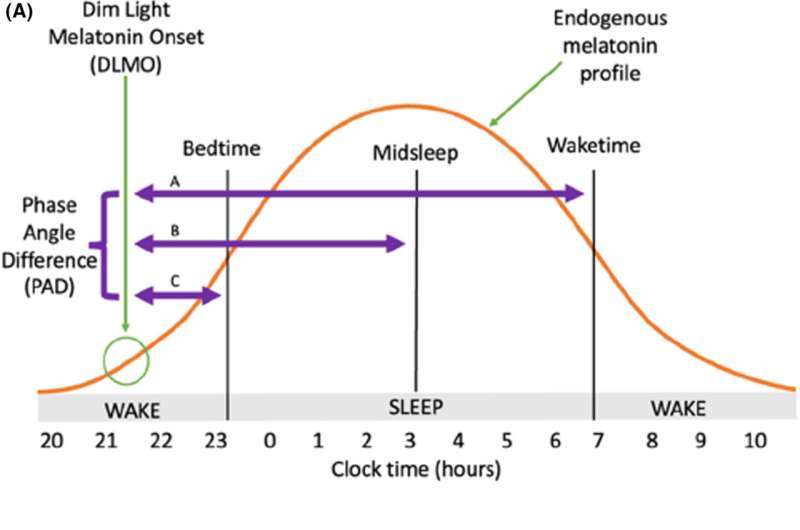This article has been reviewed according to Science X's editorial process and policies. Editors have highlighted the following attributes while ensuring the content's credibility:
fact-checked
peer-reviewed publication
trusted source
proofread
Sleep–wake therapy gives new hope for teens with depression

School systems aren't built for kids who fall asleep and wake up late, the so-called "night owls," which may help explain why this group of teens is more prone to depression.
Now, researchers at UC San Francisco have found a way to help these kids adjust to their natural sleep-cycle rhythms while still fulfilling their school responsibilities. The findings are a welcome sign for adolescents with depression, who are more likely than most to report staying up late.
While 40% of teens overall report being night owls, in those with depression, 80% report late-night sleep patterns.
The key to success with the current intervention was teaching the night owls to structure their lives so they could sleep as late as possible, while gently training their bodies to fall asleep a little earlier.
"A big finding here is that there is a subgroup of teens for whom treating sleep is particularly important for improving depression symptoms," said Lauren Asarnow, Ph.D., a clinical psychologist with UCSF Health who specializes in sleep health. "And the other big finding is that they really need to be able to live a life that is more in line with their sleep-wake biology.
It's biology, not laziness
The study, published in August in the Journal of Child Psychology and Psychiatry, analyzed data from 42 participants with clinical depression who had been part of a larger study of 176 night-owl adolescents.
Twenty-four of these adolescents received the intervention, called the Transdiagnostic Sleep and Circadian Intervention (TransS-C), and 18 received educational sessions on how to lead a healthy lifestyle. All participants kept sleep diaries and wore devices that measured the quality of their sleep. They also received 45-minute therapy sessions each week for eight weeks.
At the beginning of the study, all of the teens scored at least 40 on the Children's Depression Rating Scale, a level that indicates clinically significant depression. A score of 28 or lower indicates remission. Six months after the treatment, the intervention group's average score had fallen to 21.67, compared to 32.5 for the group that received the healthy lifestyle intervention. At 12 months post-treatment, the intervention scored 24.97, while controls were at 32.75.
A larger study will be open for enrollment to 200 teens in the Bay Area this fall.
About 3 million adolescents have at least one major depressive episode in a given year, and about 40% don't respond to treatment. Teens whose natural tendencies are to fall asleep later and wake up later are at higher risk for recurrent depression, more severe depression, suicidality and poor antidepressant response, research shows.
"There is a saying in our psychology and psychiatry clinics that the best treatment for depression and anxiety is summer break," Asarnow said. "We need to stop calling these kids 'lazy.' A lot of the time it is just their biology. It's not their fault."
More information: Lauren D. Asarnow et al, Report from a randomized control trial: improved alignment between circadian biology and sleep–wake behavior as a mechanism of depression symptom improvement in evening‐type adolescents with depressive symptoms, Journal of Child Psychology and Psychiatry (2023). DOI: 10.1111/jcpp.13880




















